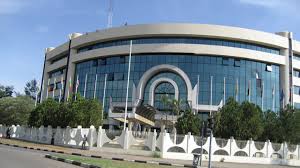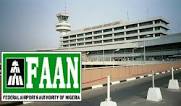Traders, farmers, and other stakeholders involved in food and agribusiness in the country have set a 10-point strategic agenda for implementation by the Federal Government and its agencies to growth the nation’s agribusiness and facilitate sub-regional trade in the sector.
The proposed measures were part of the recommendations adopted by the stakeholders at the end of a Customs Agro Traders Workshop organized by the West African Food Market Program (WAFM) in collaboration with National Association of Nigerian Traders (NANTS) in Abuja.
Specifically, the participants advocated the need for improvement in the ECOWAS Trade Liberalization Scheme’s (ETLS’) registration procedures in Nigeria as well as the imperative of moving the ETLS Desk from the Federal Ministry of Foreign Affairs to Trade and Investment. .Lessons learnt and next steps
In addition, the stakeholders agree on the need for continuous capacity building/training to improve the knowledge of traders on customs procedures; harmonization of the regional seed council to ascertain the quality of produce; and engagement of more advocacy activities to ensure the message of WAFM is well understood by partners.
Similarly, the trade and agro export business experts urged the Federal Government to immediately finalise the signing of the collaborative agreement with NEPC to bolster Training on regional trade procedures and facilitate the establishment of a national working platform for staple food trade stakeholders.
Earlier in his welcome address at the forum, the President of NANTS, Mr. Ken Ukaoha emphasised the relevance of the ECOWAS Trade Liberalization Scheme (ETLS) which provides duty free enterprise opportunity for traders in West Africa on originating goods.
He highlighted that the ETLS was created to facilitate the movement of goods without duties across the West African sub region and increase exchange of goods amongst traders in the region.
Ukaoha, however, noted that the full impact of this policy was yet to be realised due to the tariff and non-tariff barriers at the border posts and along the corridors, pointing out that such challenges have contributed in increasing informal trade in the region making trade data collection difficult, and creating further problems for policy and planning.
He also lamented that delays across borders had enhanced the perishability of agro-goods, leading to loss of profit for traders; and lamented the poor knowledge of regional trade requirements and the documents among traders and transporters
In his remarks, the representative of the Customs Department of ECOWAS Commission, Mrs. AissataYameogo, commended the organisers of the workshop for the initiative to build capacity of agro traders in order for them to acquire the knowledge of regional trade procedures and the need to strengthen the quality of our products for better profitability.
She explained that NANTS was part of the ECOWAS Task Force on ETLS set up by the Heads of States to assist traders, regulators and enforcement agencies across the region to reduce barriers.
The representative of Agric Department of the ECOWAS Commission, Mr. Ernest Aubee outlined the current challenges in the exchange of food and the current collaboration with NANTS to remove obstacles across the borders.
He outlined the requirements for export of all agro-commodities as including, quality and standards; international regulations on food safety and quality; production and post production practices; quarantine requirements; transportation procedures and storage methods for perishable goods.
The capacity building workshop, which featured the presentation of two papers, was aimed at equipping agro traders and transporters with regional trade procedures and requirements which include documentation to ease the movement of agro produce across the borders.
The workshop which also educated the traders on illegal activities that jeopardize legitimate trading across borders was attended by 64 participants from Federal Ministries Departments and Agencies (MDAs), farmers and traders’ groups, amongst others.




